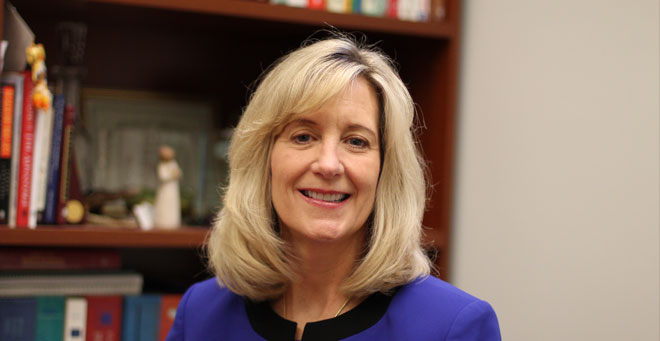 |
|
|
Luanne Thorndyke, MD |
Burnout has greatly affected work and life satisfaction among faculty in academic medicine and the challenges facing academic medical centers in recruiting and retaining talented faculty throughout their careers require new strategies, according to a paper co-authored by Luanne Thorndyke, MD, vice provost for faculty affairs.
Published in the July issue of Academic Medicine, the journal of the Association of American Medical Colleges, the authors contend that understanding and fostering what contributes to faculty and institutional vitality is central to preventing burnout.
“Vitality is the feeling of being alive, a spirit of enthusiasm, energy and activation,” said Dr. Thorndyke, professor of medicine. “The concept of vitality may be applied to individual faculty members, the faculty as a group or to an organization.” Faculty vitality is threatened by burnout, and greater understanding of the drivers and antidotes to burnout within academic medicine is needed.
Thorndyke; Tiffany Moore Simas, MD, associate professor of obstetrics & gynecology, pediatrics, psychiatry and quantitative health sciences; and Barbara Fisher, senior vice president of operations at UMass Memorial Medical Center, were recently asked to lead a burnout work group to identify triggers of burnout and recommend strategies to mitigate burnout among physicians and other caregivers at the academic health sciences center. Forty physicians contributed to the process, which identified strategic areas of focus and top priority recommendations to be considered for implementation to mitigate burnout and promote vitality.
“The future of academic medicine is dependent on the future of faculty who carry out the mission-critical work. We encourage institutional decision makers and other stakeholders to focus particular attention on the evolving expectations for faculty, the significant risk of burnout in this population, and the opportunity to improve the vitality and resilience of these talented and crucial contributors,” Thorndyke and co-authors conclude.
Visit the Office of Faculty Affairs website to learn more about faculty development initiatives at UMass Medical School.
Related stories on UMassMedNow:
Luanne Thorndyke receives medical society’s Woman Physician Leadership Award
Faculty Flexibility Award enhances career development and satisfaction at UMass Medical School
UMMS receives award for faculty work-life balance efforts
UMass Medical School Faculty Vitality Award recipients announced
UMMS advances a national model for faculty development across the career life cycle
Thorndyke receives Carole J. Bland Phronesis Award from AAMC